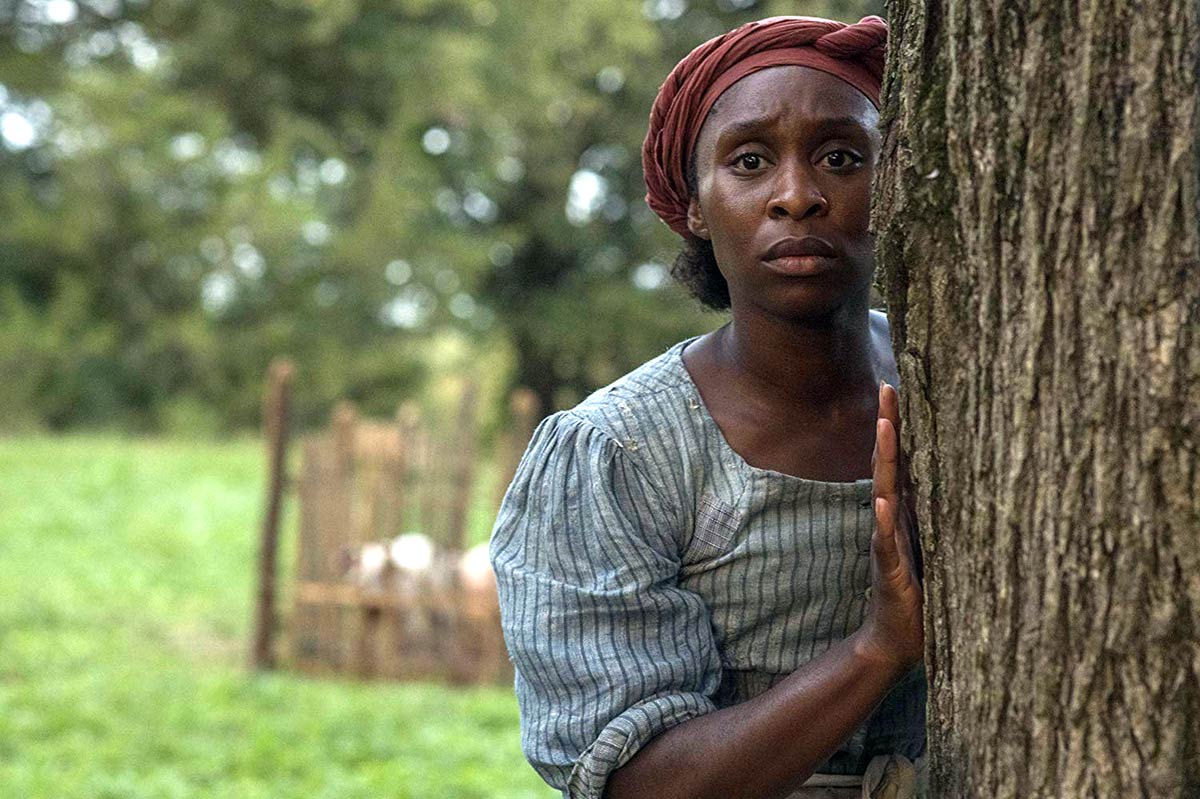Famed abolitionist Harriet Tubman is not on the American $20 bill yet, thanks to political Trumpian bureaucracy and delay, but even the consideration puts her historical and cultural importance into immediate context. Her courageous story as a political activist and risk-taking Underground Railroad leader is legendary, larger than life, and more than deserving of a fitting cinematic treatment. Director Kasi Lemmons (“Eve‘s Bayou“) and Tony-winning actor Cynthia Erivo (“Widows“) try their best to do her life and legacy justice in the biopic “Harriet,”but the results— beyond the actresses’ terrific performance— are flat, familiar, and largely uninspired in the tradition of unremarkable, eager-to-please awards bait.
READ MORE: 2019 Toronto International Film Festival: 25 Most Anticipated Movies
As an escaped slave turned abolitionist, activist, suffragist, and, finally, spy Tubman’s (Erivo) journey began living as a slave called Minty on a Maryland plantation in the 1840s. As Lemmons quickly demonstrates, via soulless bounty hunters and cruel masters, life for slaves is hell, And yet, despite the encroaching abolition of slavery, about half the state’s Black residents were free and the other half enslaved.
READ MORE: 2019 Fall Preview: The 45 Most Anticipated Films
Minty’s decision to escape captivity and take a treacherous journey to the north (Philadelphia) is now the stuff of myth. She eventually arrived at her destination and befriended Underground Railroad organizer William Still (Leslie Odom Jr.). The UR was a community of free people, and there, Minty meets inspiring figures that help her heal from her trauma, including Marie (Janelle Monáe) an educated and free-born Black woman. Their friendship helps Minty discover her identity and place in society—things she didn’t even fathom could exist for Black people. In a powerfully delivered scene, Minty finally chooses her real name, ditching the slave designation given to her by the white racists that nearly destroyed her. Eventually, Harriet is bestowed then honorary biblical nickname of “Moses,” and grows into the title of leader for over a dozen Underground Railroad missions that would free more than 90 slaves.
READ MORE: The 100 Most Anticipated Films Of 2019
As her political activism grew, so does the loneliness. Tubman’s journey back to Maryland to find her husband a year later, only to learn that he has married another woman, leads to a series of events with the potential for dramatic heft. And yet, Lemmons drops the ball. Her direction too safe, almost too conventional to fully make this movie a personal vision with emotional poignancy. Instead, “Harriet,” feel pat and uninvolving.
READ MORE: The Best Films Of 2019… So Far
The soft, stock approach to the subject does render the film as facile and by the book. Even the depiction of the nasty slave masters, all rugged-looking stereotypes, never reaches more than one-dimensional caricature. In fact, we barely see them commit heinous acts, aside from spouting the N-word left and right and spitting their tobacco down like it was nobody else’s business.
Despite the enervating, unexceptional narrative and its bland construction, Erivo’s performance is luminescent; just by her eyes alone she can emote the deepest of emotions, so it’s a true shame the movie can’t even come close to matching her. She and Tubman deserve better. There are some admirable elements, the stunning backdrop of John Toll’s cinematography and Terence Blanchard’s elegant score. But were it not for them and the startling conviction of Erivo’s affecting performance, “Harriet” could easily be mistaken for the afterschool special TV movie version of Tubman’s life.
Lemmons’ drama eventually all comes down to a showdown between Tubman and her former owners in Dorchester County, Maryland, where she has the goal to free as many family and friends as possible. But it’s nearly anti-climactic the tension is never as high as it should be is deeply problematic and many of these flaws are due to Lemmons and Gregory Allan Howard’s formulaic screenplay which feels all too predictable. Harriet Tubman may have taken a heroic, even in some cases thankless, journey on her road to emancipation, but you can more or less, figure out every beat of the voyage thanks to the conventional way the story is structured. Ultimately, the lack of risk-taking not only makes for a pedantic experience but ironically serves Tubman very poorly, never allowing for Erivo’s performance or the spirit of the subject to ever feel truly free. [C+]
Click here for our complete coverage from this year’s Toronto International Film Festival.





